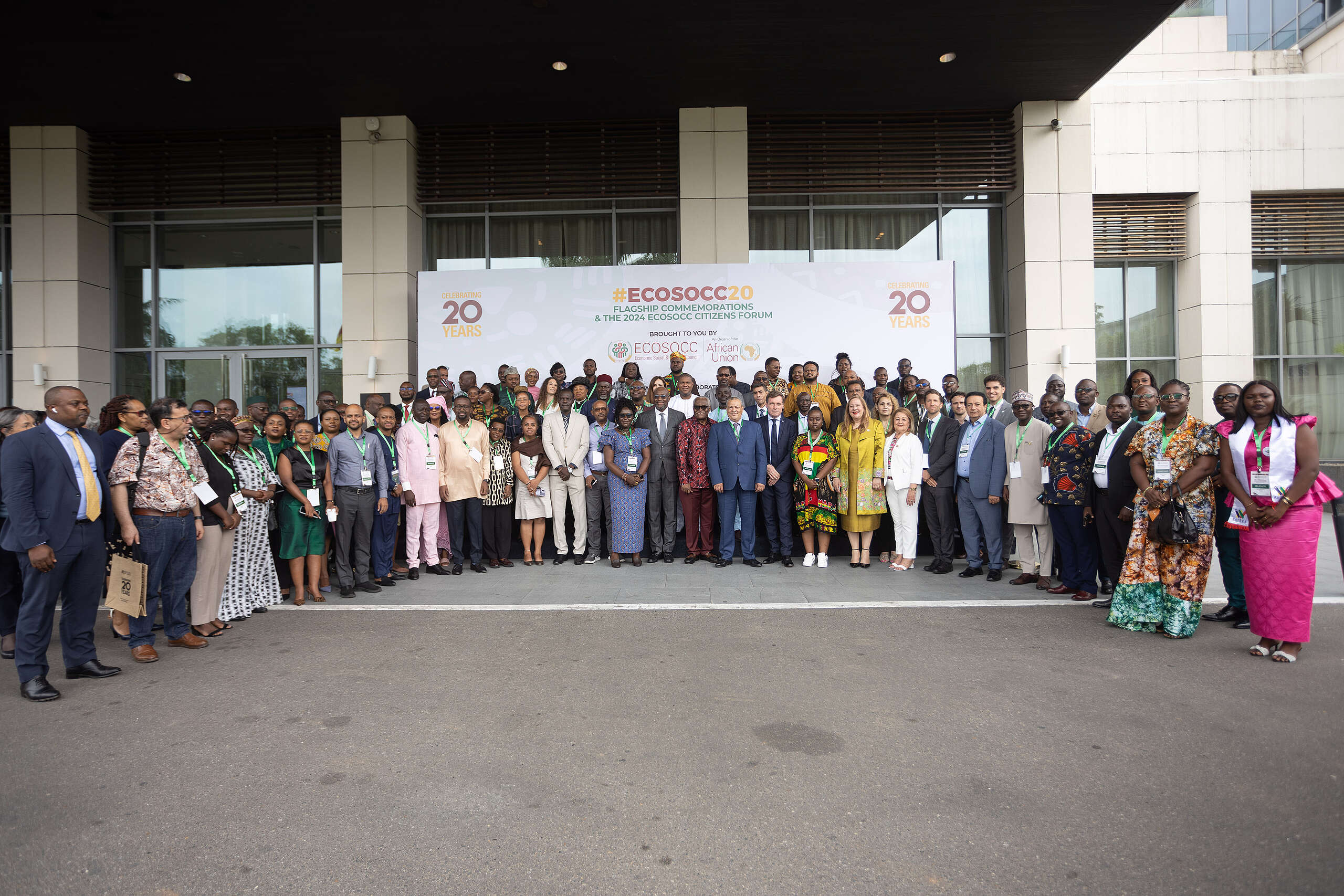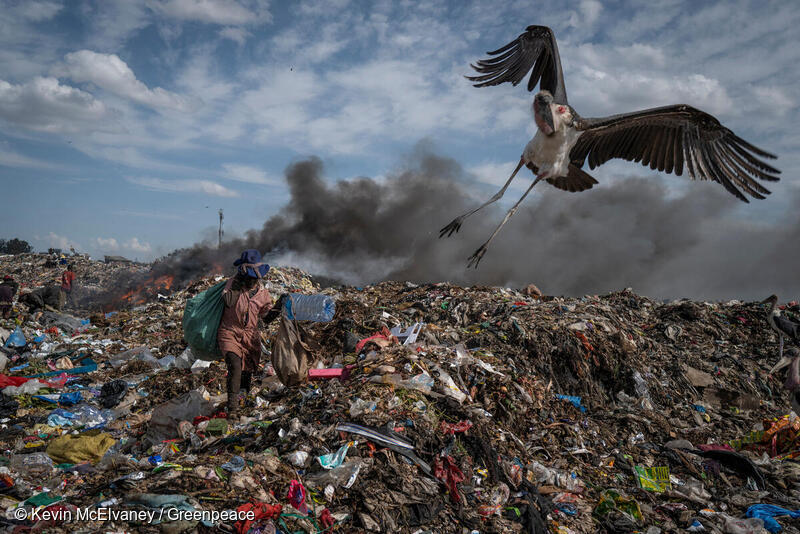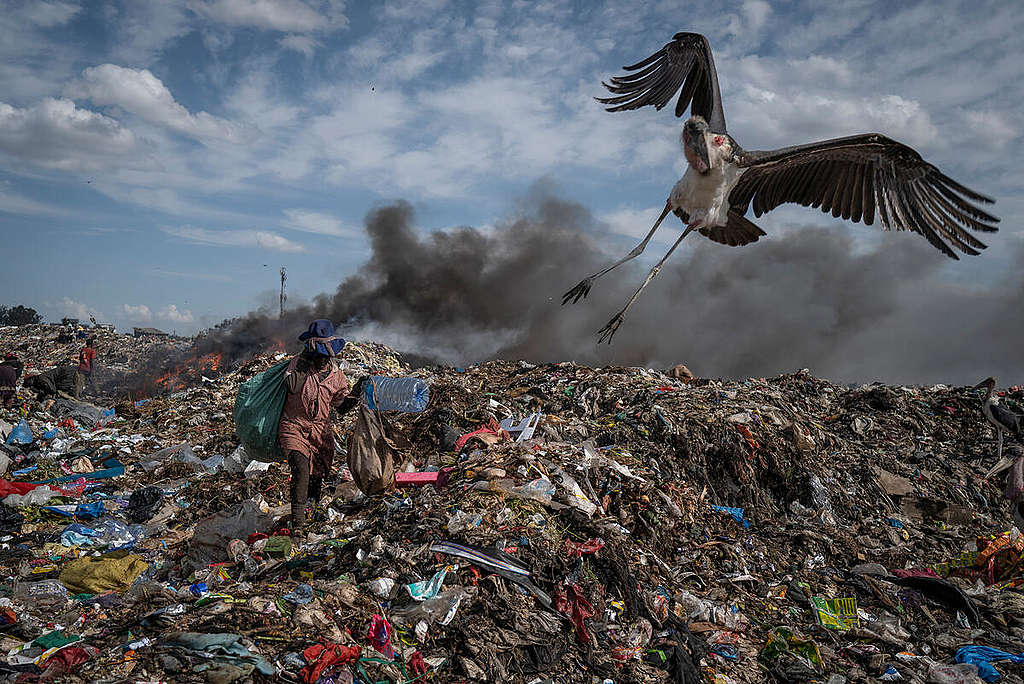
About 9.2 billion tonnes of plastic has been produced since the 1950s – the weight of roughly 1.2 billion elephants or 88 million blue whales. Can you imagine that?
And despite the impact of plastic waste on our oceans, waterways and communities, global plastics production has continued to increase year after year
Unfortunately, the plastics problem is becoming ever more urgent. The demand for plastics doubled in the last 20 years – and is expected to double again in the next 20 years. If the issue of plastic pollution is not addressed, the accelerating use and production of plastics could spell disaster for the well-being of communities and various ecosystems.
What is worse is that the current plastics economy is a significant contributor to climate change. All plastic produced is derived primarily from oil. Therefore, the consumer goods sector is increasingly aligned with a longtime and troubling ally at the heart of our climate crisis – the fossil fuel industry.
Plastic pollution and climate change are closely linked because plastic is a product of the fossil fuel life cycle. Greenhouse gas (GHG) emissions occur at every stage of the plastics life cycle – from oil extraction and refining, transport and plastic production to usage and final disposal of waste. According to UNEP, the total GHG emissions from the plastics life cycle was 1,7 Gigatonnes (Gt) in 2015, which was 3.8% of total global emissions.
It is urgent that we address plastic pollution as it poses a significant threat to human health, causes loss of livelihoods, increases greenhouse gas emissions all through the product life cycle of plastic, leads to biodiversity loss, and compromises ecosystem functioning across all of Africa’s land and seascapes. Immediate action is necessary to prevent further harm.
What can we do? These are some of the ways we can reduce plastic pollution.
1. Recycling Is Not Enough of a Solution Instead Reuse & Refill Systems Are The Way To Go
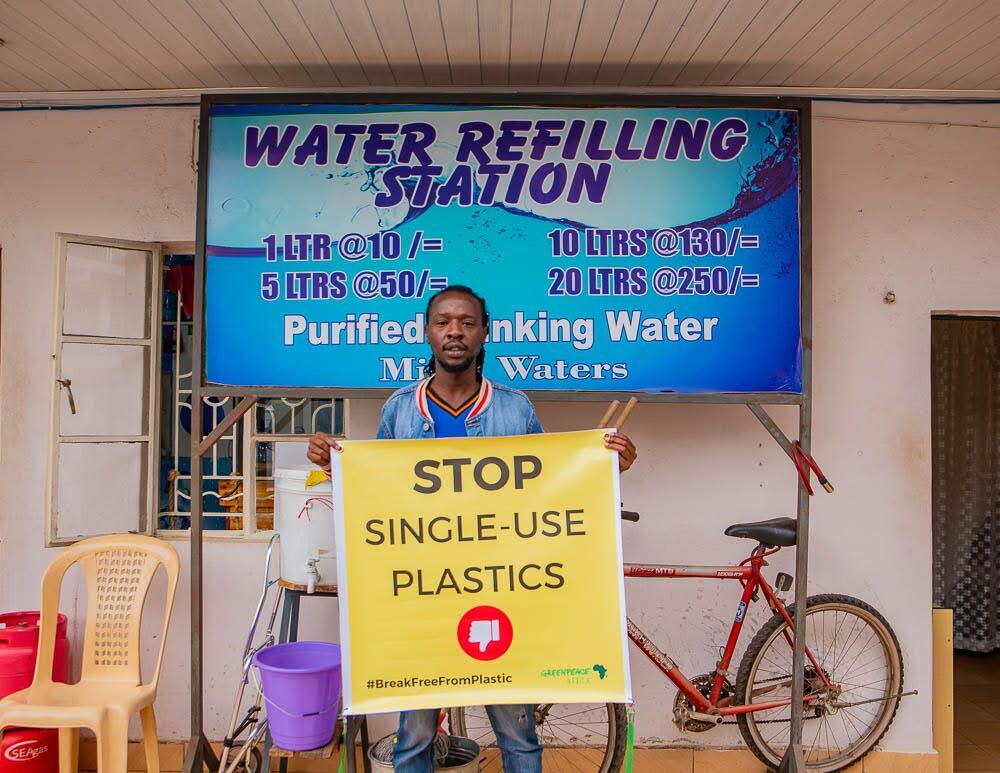
Over 90% of plastics are not recycled. Recycling alone is simply never going to solve this problem. Only about 9% of plastic has ever been recycled since the 1950s.
Corporations have been irresponsibly shifting the burden of dealing with their distribution design failures onto us for far too long.
We CANNOT believe the false claim that individuals can single-handedly sustain our planet by simply recycling the billions of tons of plastics corporations produce. It’s a lie.
Back in 2019, Nestlé, Unilever, The Coca Cola Company and Diageo announced plans to improve the collection and recycling of plastics across Africa by launching the Africa Plastics Recycling Alliance.
In their statement, these Fast-Moving Consumer Goods (FMCGs) companies once again bet on recycling as a solution to the global plastics crisis on the continent.
Corporates and businesses must move beyond pledges on improving recycling and commit to massive phasing out of their single-use plastic usage.
Recycling will not put an end to the plastic pollution crisis in fact, in most cases, this false solution enables or justifies the continuous production of single-use plastics.
If recycling is not enough to solve the plastics crisis, what is it?
Plastic pollution can be addressed by transitioning to packaging-free or reuse-based packaging and refill or delivery systems.
The scale of the problem corporations have created must be met with a fundamental shift in how they bring products to people.
The switch from single-use to reuse-based product delivery systems will reduce the amount of plastic being produced and hence address the root causes of plastic pollution.
This means an end to the business model which relies on disposable products and one-way packaging, and the start of a new paradigm that will allow the co-creation of alternative delivery systems that encourage reusing and refilling, over recycling, which we know, just does not work.
While there may not be a one size fits all approach, all businesses and corporations must begin to examine their business models that are centred on disposal, with single-use plastic packaging as the main product delivery system for their customers.
Remember when life wasn’t wrapped in single-use plastic? Reuse isn’t new.
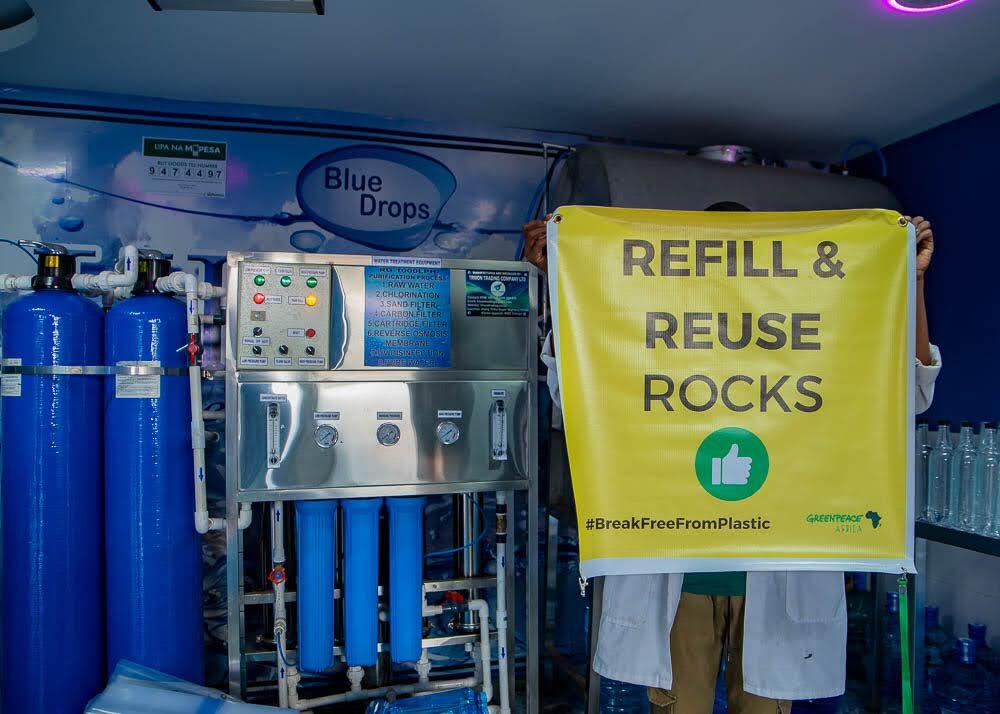
There are many alternative product delivery models that can eliminate the use of single-use plastics.
The majority of the world’s countries have a very long tradition of having reuse and refill systems in place.
In Africa, Reuse and Refill systems are integrated into the culture. For example:
- In Kenya, supermarkets have milk ATMs for refilling milk rather than consumers having to buy the milk pre-packaged plastic bottles.
- All over Africa, many reuse plastic containers as storage containers in kitchens.
- The reuse of plastic containers as planters for kitchen gardens is also commonplace.
- In Africa, refillable glass soda bottles are encouraged and promoted, along with the sale of returnable bottles. Which are in most cases cheaper than their plastic bottle counterparts as they are returnable and can be used multiple times.
- In Kenya, it is common to find water refill stations in supermarkets or local kiosks. These stations provide clean water that is sold in refillable water bottles. All you have to do is bring an empty bottle which is then filled with clean drinking water.
- In Nigeria, already used bottles for soft drinks are reused to bottle the processed product of maize, guinea corn, and millet.
- All over Africa, consumers often bring their own reusable shopping and produce bags to markets, in order to avoid using single-use plastic bags.
- Today, shops are seen offering products such as cereals, nuts, beans and pasta without packaging. Instead, reusable bags or jars are used.
There is a need to expand and build on this momentum to transition to a plastic-free future.
To succeed in the reuse and refill system, we believe that government support can play a tremendous role in providing opportunities for us – by incentivising reusable options and discouraging single-plastic use. Corporates should also invest in Research & Development and come up with sustainable packaging and delivery channels.
Laws and policies should be considered to encourage refillable beverage containers.
We Need A Global Plastic Treaty That Will Set The International Goal To Eliminate All Plastic Pollution
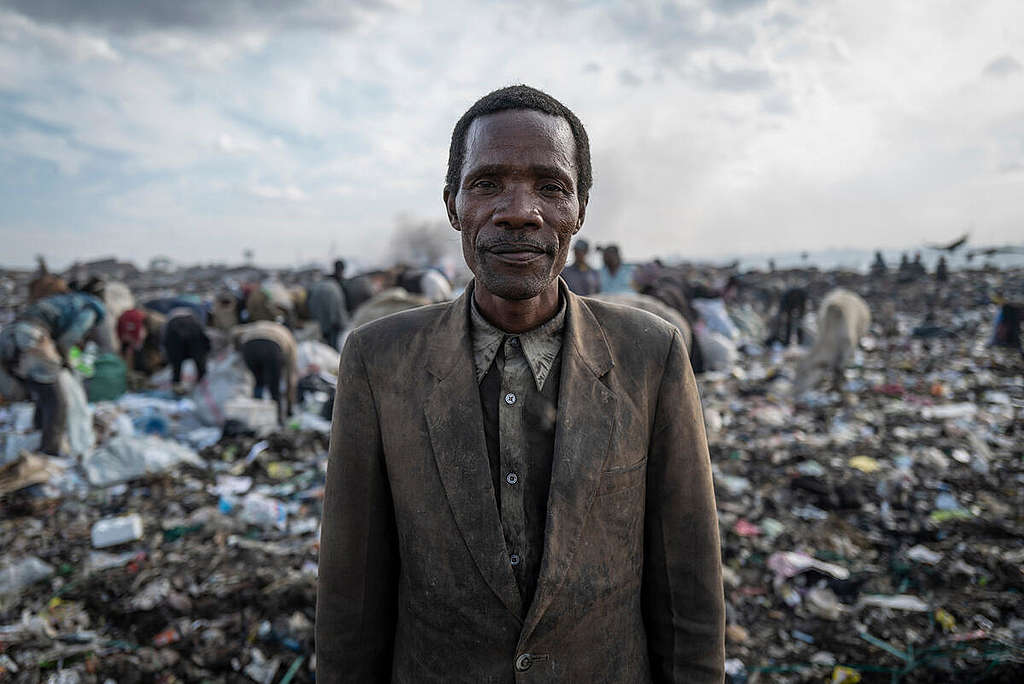
Disposable plastic is a recent human invention and, fuelled by corporate greed, it has unfortunately become the norm.
To reduce plastic pollution caused primarily by the throwaway culture pushed by big brands like Unilever and Coca-Cola, we must work towards an ambitious, legally-binding global plastics treaty that will cap and phase out or stop production and use, and ultimately end single-use plastic pollution.
What is the Global Plastic Treaty? The Global Plastics Treaty is a once-in-a-generation opportunity and a legally binding instrument that is set to solve the plastics crisis.
To fast-track its implementation we are calling upon governments to commit to a strong global plastic treaty that will limit plastic production and rapidly transition us away from pointless plastic packaging and promote the implementation of refill and reuse systems on a worldwide level.
A treaty that addresses the entire life cycle of plastic (meaning from the moment it’s produced to the moment it ends up in our rivers, forests or toxic dump sites) with a focus on phasing out plastic production, is urgently needed, or else the devastating effects of plastic on climate change, the environment, and human health will go unaddressed.
A strong plastics treaty will deliver a cleaner, safer planet for us and for future generations. This is what it will include:
- limiting plastic production and use;
- changing the way corporations deliver products to people with focus on refill and reuse;
- holding corporate polluters accountable;
- demanding full transparency on plastic production, use, import and export;
- requiring wealthy countries to lead the zero-waste transition and help others;
- Ensure Indigenous Peoples, Frontline communities, waste pickers and affected workers have a voice in designing a just transition to a reuse economy.
Every day large portions of the world's population are consuming microplastics❗
— Greenpeace Africa (@Greenpeaceafric) May 7, 2023
You may think you have no control over this, but YOU DO! 👊
Add your voice to call for a Global Plastics Treaty here 👉 https://t.co/2ERZLndRYs pic.twitter.com/4HGtRJp0M7
Help us turn off the tap and end the age of plastic by making a donation.
As Africans we are uniquely affected by plastic pollution in the following ways:
- Poor waste management systems have allowed those living in informal settlements to constantly have plastic at their back doors. All over the continent, marginalized communities face disproportionate health impacts from the plastics industry, whether through incinerators, landfills, polluted waterways, or the burning of illegally imported plastic.
- Poorly maintained drainage systems in cities are being clogged up by plastic waste leading to flooding claiming hundreds of lives, leaving countless more displaced, and destroying the livelihoods of families that are already struggling to get by.
- Fields full of garbage and mountains of trash are commonplace all over Africa. Low-income communities face more health impacts near plastic production sites, have greater exposure to toxins and waste, and bear the brunt of the impacts of improper plastic disposal and incineration.
Africa can showcase its leadership in tackling the plastic pollution crisis by taking a progressive and ambitious approach that calls for all African countries to support the treaty’s objectives, including a full life cycle approach, ending plastic production, eliminating hazardous substances, and agreeing to legally binding measures.
This treaty presents an opportunity for African leaders to demonstrate their commitment to addressing plastic pollution on the continent and to prioritize the needs of their citizens. Working together across Africa will be crucial in the fight for a plastic-free future.
Through the collective efforts of millions of people globally, an unstoppable movement can push for an ambitious Global Plastics Treaty that will effectively halt the flow of plastic and put an end to the plastic era. This would benefit our health, communities, climate, and the planet as a whole.
At the United Nations Environmental Assembly in March 2022, governments officially adopted a mandate opening negotiations for a global, legally-binding plastics treaty to address the whole lifecycle of plastics.
The negotiations for the Global Plastics Treaty have started, with the goal of completing the process by the end of 2024. The future treaty has a huge potential to put the world on a path towards a plastic-free future but it will be up to us to make sure that it delivers on its promises.
3. Increased Regulation Of Single-Use Plastics Is Needed
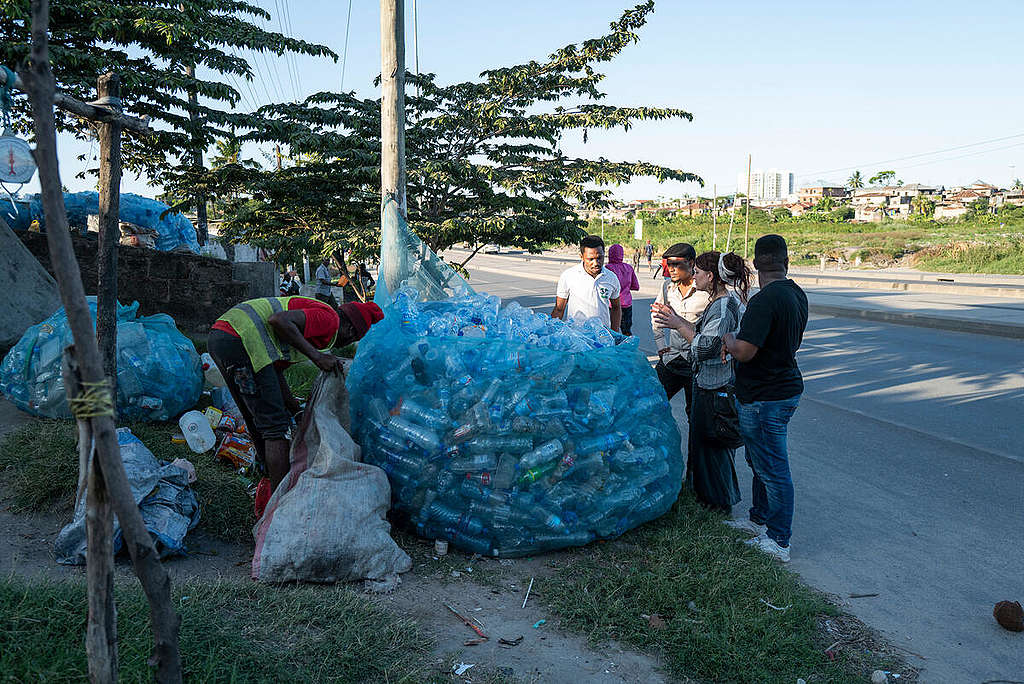
The increasing littering of the earth with plastic waste has been a symbol of our throwaway culture.
Most plastic products are designed for single use only, without considering their potential for reuse.
Drink companies alone produce over 500 billion single-use plastic bottles annually.
It’s not surprising that global brand audits have found the same big multinationals to be the world’s top plastic polluters for three years in a row.
The banning of problematic single-use plastics to reduce consumption and to force actors to design products for reuse is one great step. Transitioning away from single-use plastic should start by focusing on products with the shortest lifespan, as these plastics are the main drivers of consumption and waste generation.
Currently, 40% of plastic is single-use and remains in our environment for years. Phasing out these products is the first step toward reducing consumption. The phase-out of single-use plastic can include bans on certain single-use products, such as straws or shopping bags, as seen in many countries.
Importantly, these initiatives cannot exist in a vacuum. They must have supporting legal frameworks at the global, regional, national and local levels that create the conditions for a no-plastic-in-nature future.
The way plastic is produced, and the way products and packaging is designed, combined with how plastic items are managed after use, are highly unsustainable and damaging to both human health and nature.
This is how plastic pollution harms us:
- Plastics are making the climate crisis worse – 99% of plastics are made from fossil fuels and corporations keep making more. Cutting production and ending single-use plastic is in line with the goal of keeping global warming below 1.5 degrees.
- Big oil is a big threat to an ambitious plastics treaty. If the industry has its way, plastic production could double in the coming years, and triple by 2050, which will undermine a meaningful plastics agreement.
- Plastic is polluting throughout its entire lifecycle, from the moment it is extracted to its disposal. Polluters need to stop relying on big oil and invest in reuse and refill. We need countries around the world to show leadership on this issue and match the urgency of the crisis by championing an ambitious Global Plastics Treaty.
A common and effective method to address plastic pollution is increased regulation of single-use consumer plastics. Single-use consumer plastics – which include things like plastic beverage containers and plastic bags make up the bulk of debris collected on coastlines and beaches and are constantly overflowing in landfills.
Most single-use plastics have a very short useful life. Few are reused and even fewer are recycled, and the large majority are landfilled after just a few moments of use.
Far too many are discarded and washed by storm sewers, streams and the wind into the ocean.
Regulating the use of single-use plastic is an important step towards solving the plastics problem. At least 34 African countries have taken action to either tax or ban single-use carrier bags.
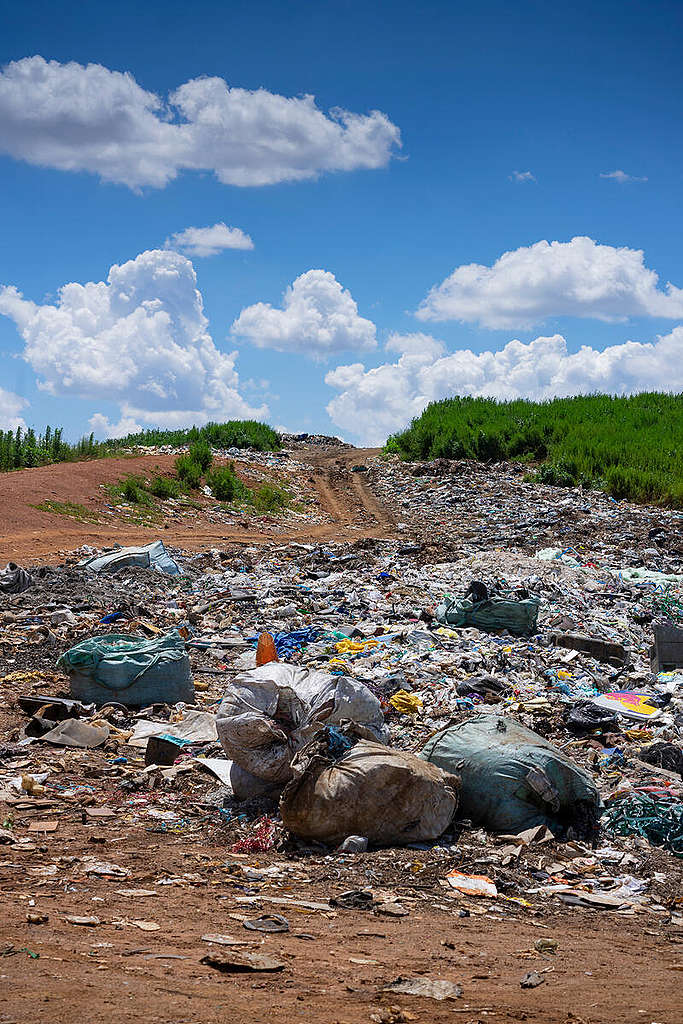
Countries that have instigated bans on single-use plastic shopping bags include:
Rwanda: In 2008, they implemented a law that prohibits all manufacturing, use, importing and selling of all polyethylene bags in Rwanda.
Eritrea: In 2005, the East African state became the first to adopt an outright ban on plastic bags.
Tanzania: Plastic sachets are prohibited from being manufactured or imported to mainland Tanzania. Tourists are not allowed to enter the country with plastic carrier bags.
Senegal: It announced its ban on single-use plastic water sachets and coffee cups in February 2020.
Madagascar: Plastic bags less than 0.05 millimeters thick have been banned in Madagascar since 2015, and have forced local businesses to find alternative packaging solutions.
Nigeria: Banned plastic bags in 2014. It includes both plastic shopping bags and plastic sachets of drinking water.
Other countries include Mali, Tunisia, Malawi, Mauritania, Kenya, South Africa, The Gambia, Mauritius, Democratic Republic of the Congo, Congo-Brazzaville, Seychelles and Burkina Faso.
4. Regional And National Implementation Plans Are Needed To Execute The Objectives Of The Global Treaty To Stop Plastic Pollution.
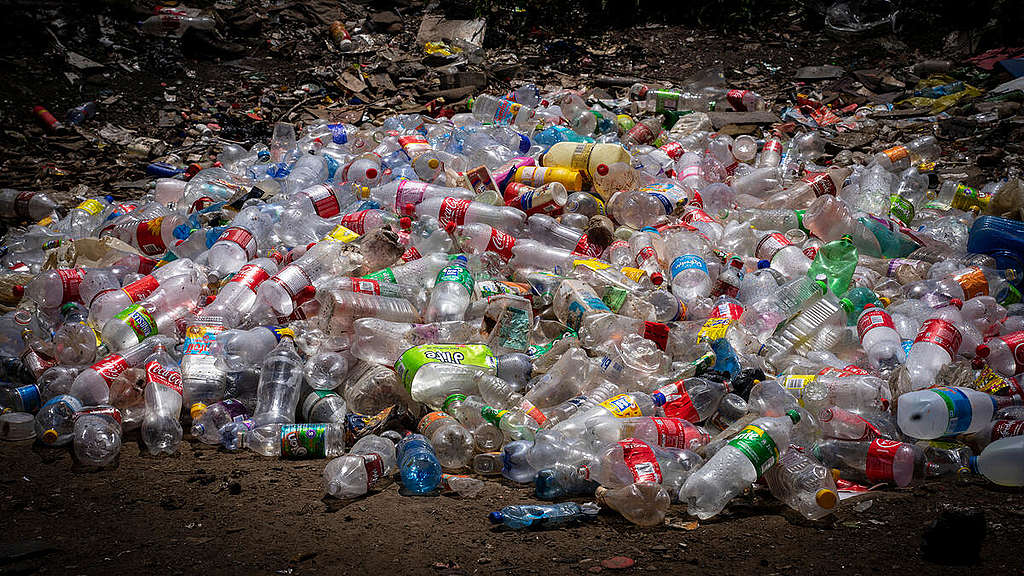
Since 2000, the world has produced as much plastic as all the preceding years combined. We need to enforce and strengthen legislation to curb plastic pollution.
The existing policy and legal frameworks are fragmented and ineffective due to policy gaps at the global, regional and national levels.
At a national level, African governments have the opportunity to develop specific policy responses across the full plastics life cycle, depending on their national context, priorities and plastic hotspots.
If we are to meet the challenge of plastic pollution, countries, states/provinces, local governments, and civil society will all have to mobilise.
The issue of plastic pollution demands attention at virtually every level of government.
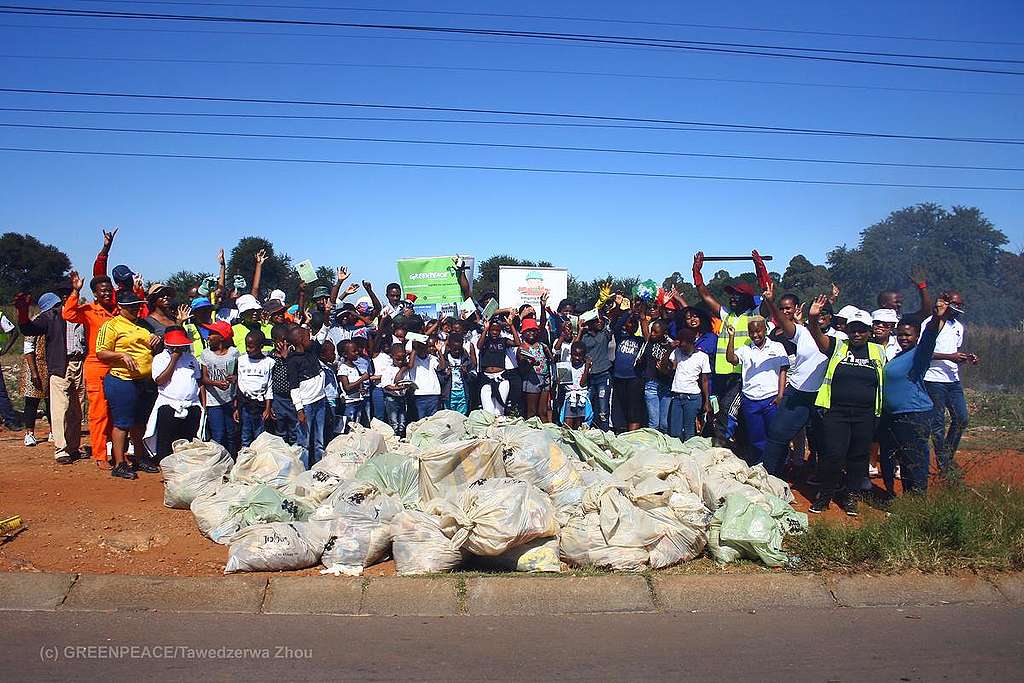
Below we recommend a broad action agenda to prevent plastic pollution – through regulation, policy and mobilization of civil society. The ultimate solution must include both:
• prevention of the pollution; and
• actions to address and remove the current pollution.
Many jurisdictions have implemented complete bans on various single-use consumer plastics. However, there are other regulatory options for such plastics.
Governments must develop implementation plans to stop plastic pollution by developing governance and policy mechanisms to lower plastic consumption and improve waste mismanagement.
Local governments must create plastic waste standards and regulations to deliver upon these policies. Additionally, financial flows will be needed to tackle waste mismanagement by building local technical capacity and developing reuse waste management infrastructure.
- We urgently need governments around the world to implement national policies pushing big brands to phase out single-use plastic, support reuse and negotiate a strong Global Plastics Treaty that will end runaway plastic production and use.
- Governments must work to ensure a just transition for workers working in the plastics economy and guarantee the health of the most affected communities.
Yes, there are safe and decent jobs that can be created in moving to refill and reuse models.
Contrary to common belief, the plastics industry/fossil fuel industry supports/upholds the lifestyles of billionaires and keeps people in poverty.
Keeping stakeholders accountable is how we prevent further plastic pollution
The government needs to ensure accountability throughout the system by developing appropriate policy instruments and effective implementation to ensure private sector accountability and support investment into infrastructure and solutions relevant to each country’s context.
The government needs to hold accountable private sector entities that fail to take action or to work in good faith in addressing the systemic drivers that perpetuate the plastic crisis.
5. Improve Waste Management Systems So That The Right Infrastructure Is Available To Receive Plastic Waste And Ensure Its Reuse.
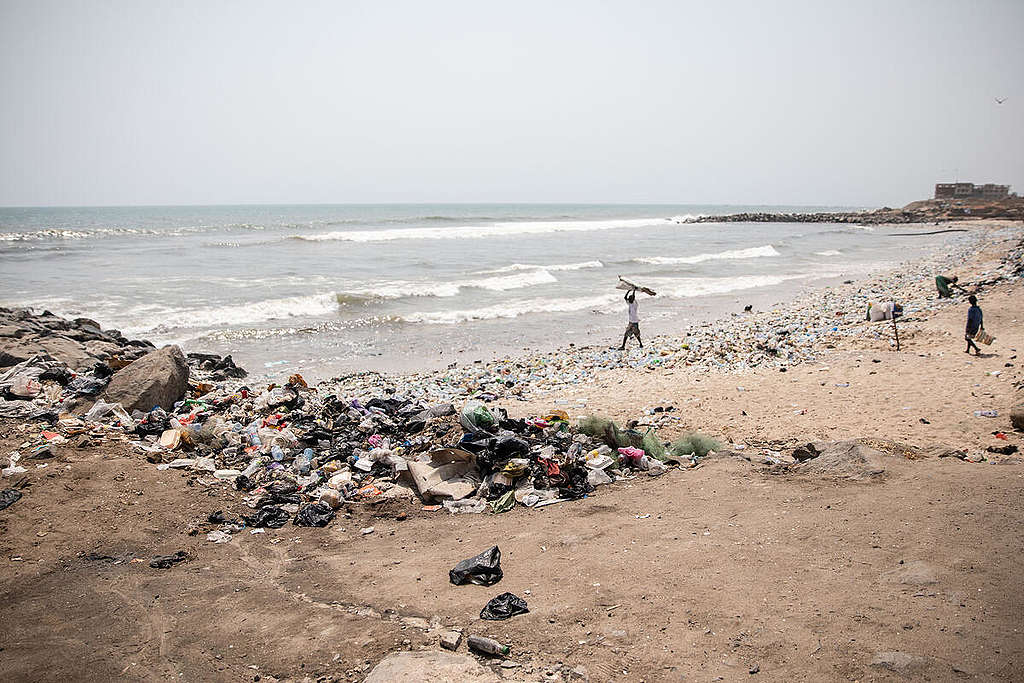
Rapid consumption practices generate huge amounts of plastic waste that the world is ill-equipped to handle.
Mismanaged plastic waste is a critical concern as it is more likely to become pollution than waste managed through a controlled waste treatment facility. Mismanaged waste refers to plastic left uncollected, openly dumped, littered, or managed through uncontrolled landfills.
These processes, particularly open incineration, release toxic gasses, as well as nitrous and sulphur oxides, all of which can affect air quality. Open dumping also pollutes nearby aquifers, water bodies, and settlements.
Uncollected plastic waste often becomes plastic pollution.
Since the ocean is downstream from nearly every terrestrial location, it is the receiving body for much of the plastic waste generated on land. Several million tons of debris end up in the world’s oceans every year, and much of it is improperly discarded plastic litter.
There are also terrestrial aspects to plastic pollution. Drainage systems become clogged with plastic bags, films, and other items, causing flooding
WEF Studies estimate that globally, 32% of plastic packaging escapes collection systems, the main causes being underdeveloped waste management infrastructure and barriers that make it difficult for end-users to sort and dispose of their waste.
Underdeveloped waste management infrastructure is a major challenge in low and middle-income countries, and it leads to low collection rates.
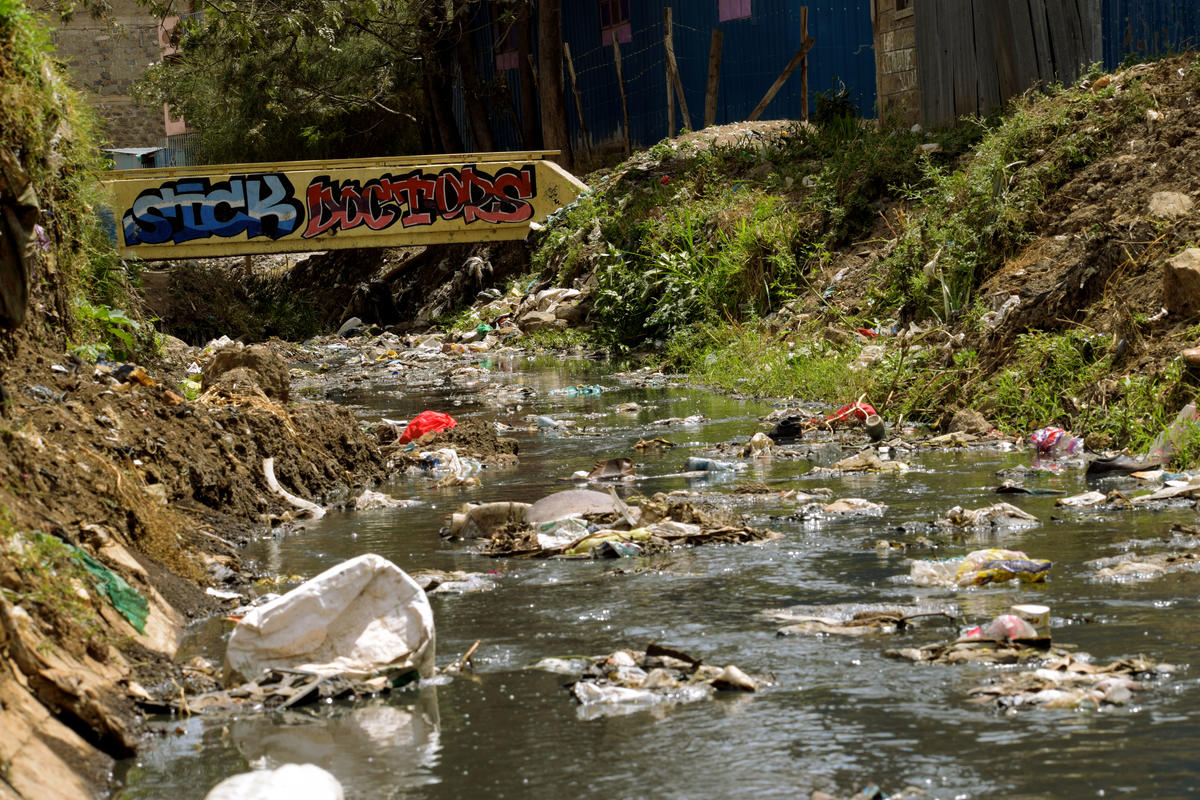
There is limited investment in waste management infrastructure in low and middle-income countries amid the many competing development priorities.
Unless waste management systems improve across the globe, as the rate of waste generation continues to grow, the amount of uncollected waste and resulting plastic pollution is certain to rise.
End-users face challenges disposing of plastic waste, which leads to waste being discarded directly to landfills or dumped into nature. Communities in low and middle-income countries often need to travel many kilometers from their homes to dispose of waste in a central container or collection point where it is picked up by their municipality.
Mismanaged waste is a direct cause of plastic pollution. In countries with fewer effective end-of-life waste management systems, plastic waste is far more likely to end up in inadequately controlled landfills or open dumps. Without improvements to waste management systems, the global volume of plastic pollution is set to increase rapidly.
Without systemic change to the plastic life cycle, the current plastic pollution crisis risks spiraling out of control.
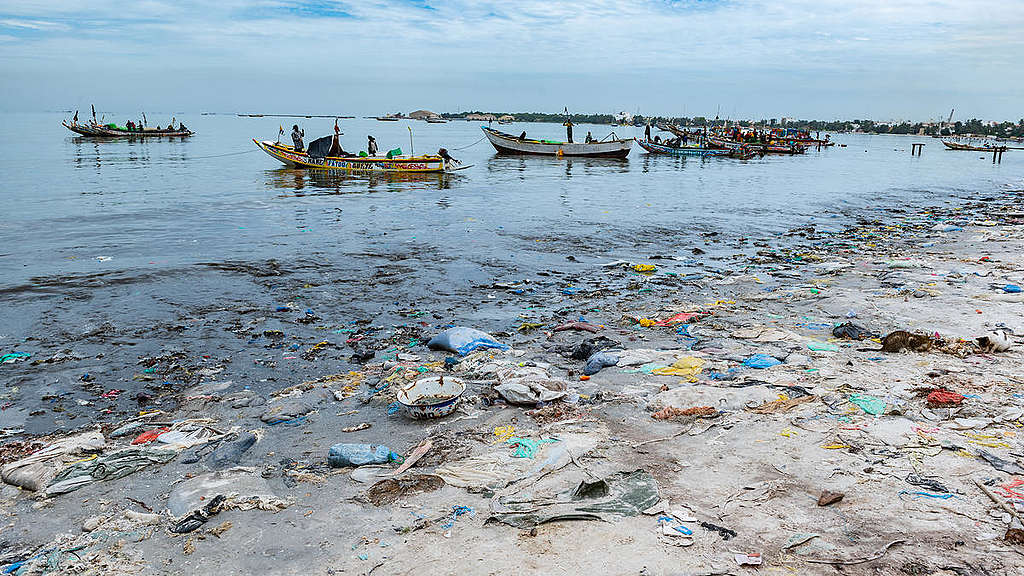
The plastics industry has produced more plastics since 2000 than all the preceding years combined. As a result, plastic has contaminated the planet’s soils, freshwater bodies and oceans.
Additionally, humans are ingesting more plastic from their food and drinking water, and carbon dioxide emissions from plastic production and incineration are growing each year. To reverse this tragedy, the plastic life cycle needs urgent systemic change.
The global standard to eliminate waste mismanagement should target 100 per cent collection rates, including cleaner flows of plastic from product design to waste treatment, and should mandate the eradication of open dumping and uncontrolled landfilling
6. The Global Plastic Waste Trade System Needs To Come To An End
We spoke earlier on the recycling myth and how most “recycled” packaging waste is downcycled into lower value or non recyclable products, meaning that the myth of recycling only delays the plastic’s inevitable journey to the landfill.
What is even worse is that much of the packaging collected for “recycling” in the Global North is exported to the Global South to be disposed of.
Countries like Canada, the U.S., and the UK export plastic waste to various countries in Africa, offloading their trash problem to other communities.
Before it banned the trade in 2018, China alone imported nearly 8 million tonnes of plastic waste a year. Now the top destination for this waste is Southeast Asia and Africa where the lack of infrastructure and regulations make it difficult to manage the influx of trash from both domestic and foreign sources.
A Global Plastics Treaty would also help close the doors of Africa to those seeking to dump their plastic waste on Africa’s soil.
Governments must end the continuing waste trade and uphold the Basel Convention Plastic Waste Amendment that prohibits the export of hazardous plastic waste to developing, non-member countries of the Organisation for Economic Co-operation and Development.
There is a need to move away from waste colonialism to promote environmental justice in the Global South countries.
Africans are resisting any form of plastic waste colonialism as it does not take into account our dignity.
It’s high time to get out of this waste colonialism which stifles all the sustainable development initiatives of African countries and more specifically slows down the efforts made so far by African countries on plastic pollution and plastic waste management.
Address The Root Problem & Extend Producer Responsibility
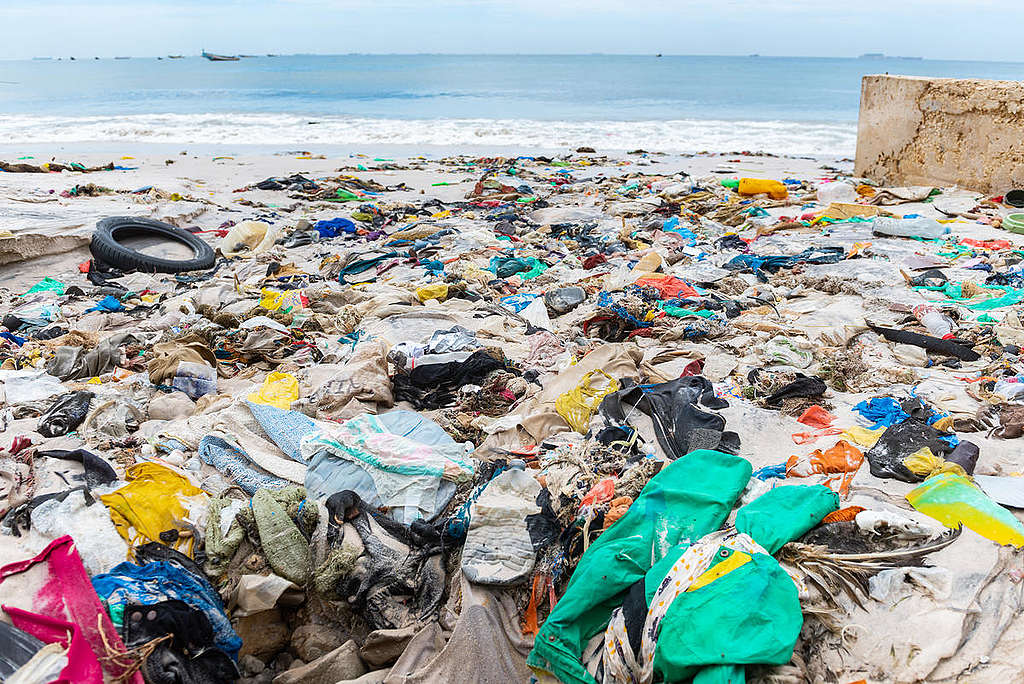
Plastic pollution comes at a cost that is not carried by the stakeholders that are profiting from plastic production and usage.
We need to incentivise companies to reduce the use of wasteful plastic packaging in favour of reusable, easily compostable options. One way to incentivise this innovation is to require the companies to internalize the costs that their products create for society and the environment.
If we are going to reduce plastic pollution, there must be comprehensive implementation
of the requirement that producers take full responsibility to stop their products from causing environmental havoc.
One way to do this is by implementing Extended Producer Responsibility (EPR) programs. These programs require producers to be proper stewards of their own products.
EPR programs require producers and distributors to take responsibility for the proper disposal of their products – after consumer use. It is also based on the idea that producers have the most control over product design – and thus have the most control over end-of-life options for the item.
Governments can establish effective EPR programs that:
- Shift financial and management responsibility for proper disposal and recycling to the producer.
- Extend responsibility, provide incentives to producers to incorporate environmental considerations when they first design their products and packaging.
Such programs are important, to ensure that plastic products are properly disposed of. Such programs can also shift manufacturers away from wasteful plastic packaging in the long term.
8. Engage Consumers To Inspire Behavioral Change.
Most plastics have a chemical structure which makes them highly resistant to many natural processes of degradation and as a result of this, it takes them a long period of time to degrade.
The slow breakdown of plastics presents further long-term threats. Most plastic debris in the marine environment will not biodegrade but will instead break down into much smaller microplastics.
When it is the case of marine plastic pollution, fish, shellfish and mammals are ingesting these microplastics, which then work their way up the food chain.
These two factors have resulted in the enormous presence of plastic pollution in the environment and at the same time affecting human health adversely.
In order to shift from this reality, there needs to be a change in dominant public mindsets away from our throwaway culture.
Currently, many of us see convenience as being equal to disposal, we need to work toward a vision of healthy, sustainable and more connected communities free of plastics.
There is a need to raise awareness among the population, and among civil society actors, and promote a mindset shift that will push ordinary citizens to adopt eco-responsible behaviours. Greenpeace Africa, with the help of its outstanding volunteers, is doing a lot of work in this direction.
Even with a mindset shift from consumers, the majority of the work still remains with corporations as they need to move to refill and reuse in order to give us as consumers a choice in the matter.
9. Investing In Environmentally Sound And Sustainable Alternatives To Plastic
Consumers’ efforts to reduce their plastic footprint is important, but more often, plastic straws, bags, bottles, and packaging materials are pushed onto buyers who are overwhelmed and hard-pressed to find alternatives that put a stop to single-use plastics penetrating the market.
These multinational corporations responsible for plastic pollution need to show leadership and real innovation by investing their massive resources into new delivery systems of refill and reuse.
It is high time they moved away from the throwaway culture and immediately provide consumers with sustainable alternative solutions – informed by safe and innovative delivery systems.
These polluting companies need to innovate and scale environmentally sound alternatives and offer consumers product choices beyond plastics. They should support consumers to phase out the usage of unnecessary plastics and to embrace reuse business models.
Replacing plastics must only be done with materials with a net positive impact on the environment, not just any alternative.
There are plastic alternatives that are becoming more prevalent around the world, but to bring about change at the scale needed, corporations are going to have to innovate as only they can afford to do.
10. Look Out For False Solutions To Plastic Pollution
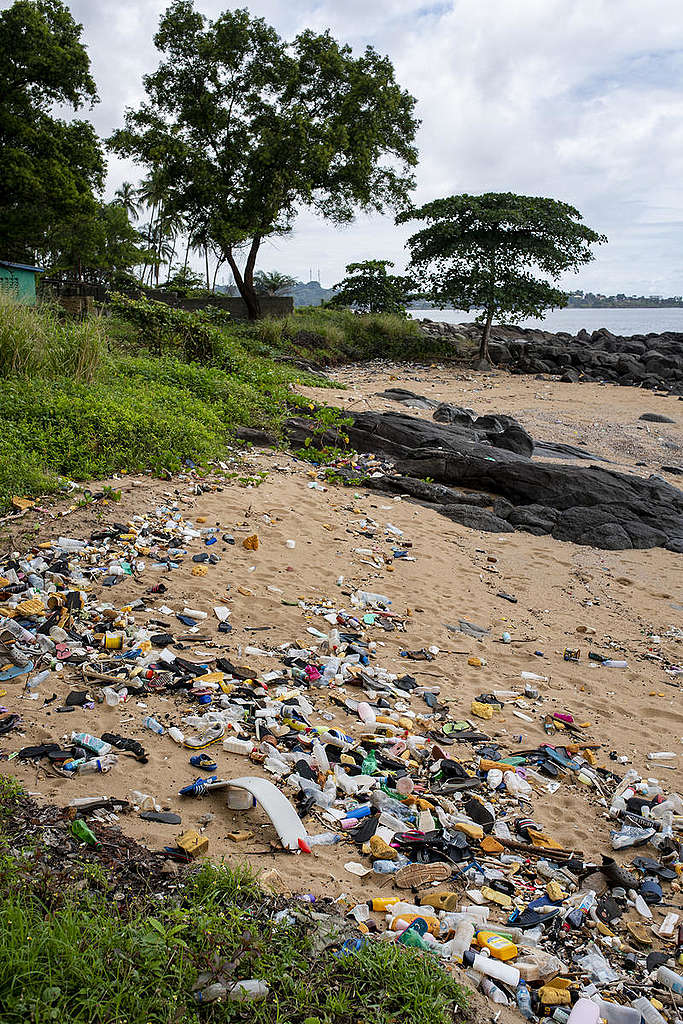
Apart from recycling, what are the other false solutions to plastic pollution?
- Bioplastics – not as green as they seem, approach with caution. Though companies often market them under the same umbrella, a product is not necessarily biodegradable and may require very specific conditions to break down. They also do not solve the litter or throwaway culture problem.
- Incineration – creates other pollution and does not address the overproduction problem.
- Focusing on the end of life like recycling or disposal – we can’t recycle our way out of this crisis.
- Clean up – while clean up efforts help reduce litter problems, they do not address the source of the problem and ignore the unseen plastic pollution – microplastics.
- Throwaway alternatives – replacing one single-use item with another does not necessarily solve the problem or help to address our throwaway culture.
Other failures that we witness all through the plastic lifecycle:
- Producers are not accountable for the end-of-life stages of materials or products.
- Prevalence of single-use, problematic and unnecessary plastic product and packaging design and unsustainable business models.
- Multiple barriers for end consumers to make sustainable choices about plastic products and packaging, including inconvenience, a lack of access and the high costs of sustainable options/alternatives
- A lack of information to empower consumers to reuse, refill and reduce their plastic usage.
- The majority of plastics ever manufactured are not recyclable
- Export of plastic waste to other countries.
What is the real solution?
To tackle the plastic pollution crisis and end the throwaway culture, big brands like Coca-Cola, Nestlé, Pepsi and Unilever need to urgently phase out single-use plastic by replacing their packaging with systems of refill and reuse. Governments must hold them accountable by adopting a Global Plastics Treaty that prioritises the reduction of single-use packaging.
Help Us Make A Difference
Millions of people across the globe are taking action against corporations like Coca-Cola, PepsiCo and Nestle to demand they end their reliance on single-use plastics.
Downstream interventions, currently the singular focus of plastic waste reduction efforts, are severely limited and ineffective.
To resolve this tragedy, a systems approach is needed to create a path to no plastic in nature. To stop plastic pollution, tactics should include building on and reinforcing existing initiatives, such as banning single-use plastics and upgrading national waste management plans.
At the same time, a global accountability mechanism should be created featuring multilateral agreements with clear on-the-ground plans, robust domestic laws, and commercial devices to distribute responsibility appropriately across the plastic life cycle. This is what the Global Plastics Treaty promises.
When people speak out, big brands listen. If enough people call out these companies we can make a change.
We need to demand that these giant companies reduce their plastic footprint at the source and invest in refill and reuse now.
Donate today and help us put an end to the plastic pollution crisis.

